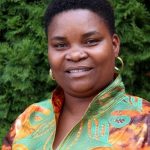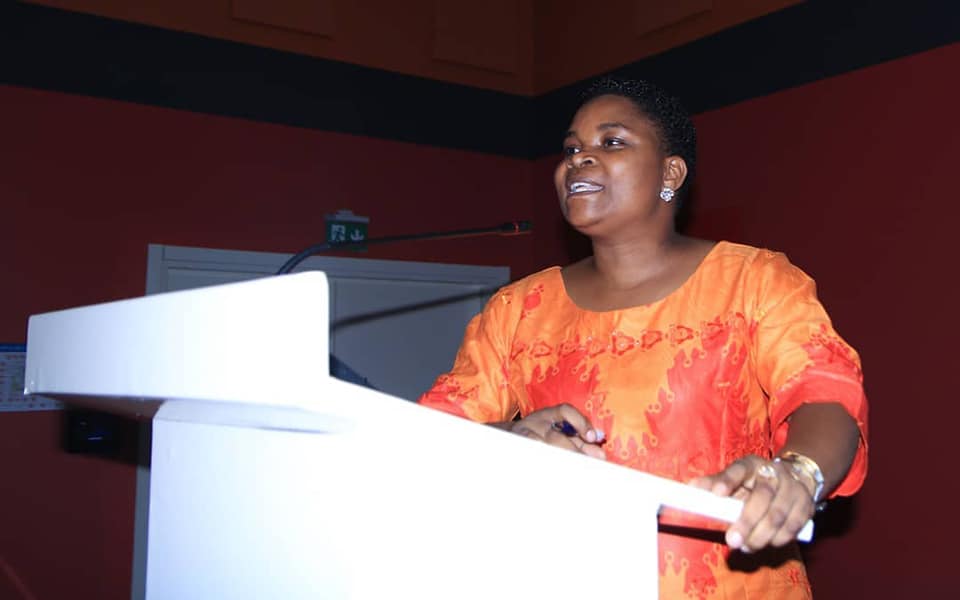Q&A Session with Ms Elizabeth Nsimadala, President of Pan African Farmers’ Organisation and Eastern Africa Farmers Federation.
Every year, on the 8th of March, we celebrate the International Women’s Day around the world honouring the social, economic, cultural and political achievements of women. Last May, during the 2019 General Assembly, WFO awarded you, as leader of Eastern Africa Farmers Federation (EAFF), for all your efforts in supporting the world farmers and contributing to a better agricultural sector. Two months after, in July, you have been elected President of the Pan African Farmers Organisation (PAFO). In your opinion, what is the added value of young and female leadership in organised agriculture?
Once queen Rania of Jordan said: “If you educate a woman, you educate a family, if you educate a girl, you educate the future.” I say: our youth is the future and our women are the guarantee of a successful future. Especially in Africa, women are those who care of the farm, they are those who work everyday on the farms, making sure that the business goes smoothly that workers are happy and that financials are in a good shape.
Women are also those who care about the family, the children and the stability of the households. Because of their unconditional love for their land, for the tradition and an ongoing development of the communities, women have inner leadership skills that if accompanied with proper education can lead an entire nation. Farming is a family business and the farming sector, being it a local, national or regional level, is a family. Young farmers are our future and their leadership is based on passion for innovation, for growth, for development. They have a vision much longer than our and we cannot miss their perspective in organized agriculture.
Unfortunately, in Africa, both women and youth join leadership roles with an array of challenges that may limit their participation in farmers’ organizations leadership, sometimes because of the patriarchal systems with cultural norms that mostly value the male gender at the expense of their counterparts. However, once in leadership roles, young women are a great asset and an added value to organized agriculture, they are full of energy to change the status quo, their zeal is coupled with new ideas and innovations to address the challenges they encounter and are able to drive meaningful and impactful change in the sector.
Women are central to agriculture and make a substantial contribution to food security and nutrition at both the household and community levels. Still, their role, especially in developing countries, is limited by barriers to finance, inputs, and extension services, as well as land ownership and rights. What is needed to empower women and close the gender gap in agriculture? How many years will it take before we achieve gender equality in the agricultural sector?
Gender equality is a fundamental development objective and is essential to enabling women to participate equally in society and in the economy. Many programmes in the African Region are dedicated to improving the lives of women and men by supporting government partners with knowledge and finance.
Significant progress has been made in closing gender gaps in Sub-Saharan Africa: by 2008, there were 91 girls for every 100 boys in primary school, up from 85 girls in 1999. And at 61 percent, women in Sub-Saharan Africa have one of the highest labor force participation rates in the world. Despite these gains, African women continue to face some unbalanced situations, especially when it comes to education and finance access. Girls are still much less likely than boys to benefit from a secondary education. Women and girls often have little influence over resources and norms, restricting what jobs and crops are considered appropriate for women and thus limiting their earning potential in agriculture, enterprise or the labor market. Women’s voice and agency remain limited, with rates of gender-based violence reaching alarming levels.
Achieving gender equality in the agricultural sector is a gradual process hence not easy to give timelines, the truth is that it cannot be attained in a shortest time but every win is a success worth cerebrating and a motivator to double efforts. There is need for all the actors to appreciate the importance of gender equality and all equally contribute towards attaining it.
The Decade of Action calls for an ambitious global effort to deliver the 2030 promise, which pledges to “leave no one behind.” With just ten years to go, how can we ensure that farmers, especially women, are truly prioritized and not left behind?
We need to empower women economically through skills development in Agribusiness and commercial agriculture. Governments should offer incentives to the women farmers including start up and patient capital which would support them to add value to what they produce andbe able to boost their incomes, we need to see increased participation and inclusion of women in leadership spaces and decision making processes to have their voices heard this can be done through creation of women and youth specific slots Inthe organizationalgovernance structure , we need an alternative strategy for gender equality that should include the use of male champions to drive campaigns that advocate for equality , we need to say no to the harmful cultural and traditional practices that make women vulnerable. Lastly, we need to profile successful cases of women who have made it to act as role models through sharing their experiences and peer to peer learning.
Being a woman, a farmer, a leader. What are the biggest challenges facing your work? What are your main goals?
The biggest challenge is balancing the different roles, addressing the challenges and meeting deadlines that come with each responsibility; as a mother and wife the children and husband expect me to be a mother figure and a captain of the house , as a farmer my eyes on ground are very important in shaping the business, as a leader I have to be the vision bearer of the different organizations that I lead and make sure that I give strategic direction and play an oversight function on behalf of the different Boards but also other corporate social responsibilities that arise from the different communities, churches and schools where I sit on management boards and governing councils. But for every opportunity I believe there is always a challenge and a solution, I have embraced technology and made sure that all my programs are managed in the google calendar, I have made myself very flexible to hold both physical, e- meetings and at times after office late hour meetings with the CEOs of both PAFO and EAFF. I have prioritized timely communication at all levels to be up to speed with the different responsibilities and am happy that I have positive support from everyone around me.
My main goal is to become a successful agriprenuer and a leader who will impact on people’s wellbeing and community transformation.
A phrase or a quote you will never forget?
Hmmmmmmm! At some point due to political differences, someone was trying to confront me with inbox messages and after several attempts, I responded, ‘’Silence does not mean I agree with you, it actually means I have studied enough of you and you don’t deserve my response. It’s my pill to idiocy’’ the person went mute for more than twelve years. Recently I met that person at a friend’s wedding party and he reminded me about the statement I sent him twelve years ago and how it trimmed and shaped his character.
ABOUT THE AUTHOR
 Elizabeth Nsimadala is the President of the Pan Africa Farmers’ Organization (PAFO) and President of Eastern Africa Farmers Federation (EAFF).
Elizabeth Nsimadala is the President of the Pan Africa Farmers’ Organization (PAFO) and President of Eastern Africa Farmers Federation (EAFF).
She is a successful agriprenuer from Uganda and was recently awarded and globally recognized by the World Farmers’ Organisation (WFO) as one of the exemplary women leaders in Farmers’ Organizations contributing to sustainable development.
